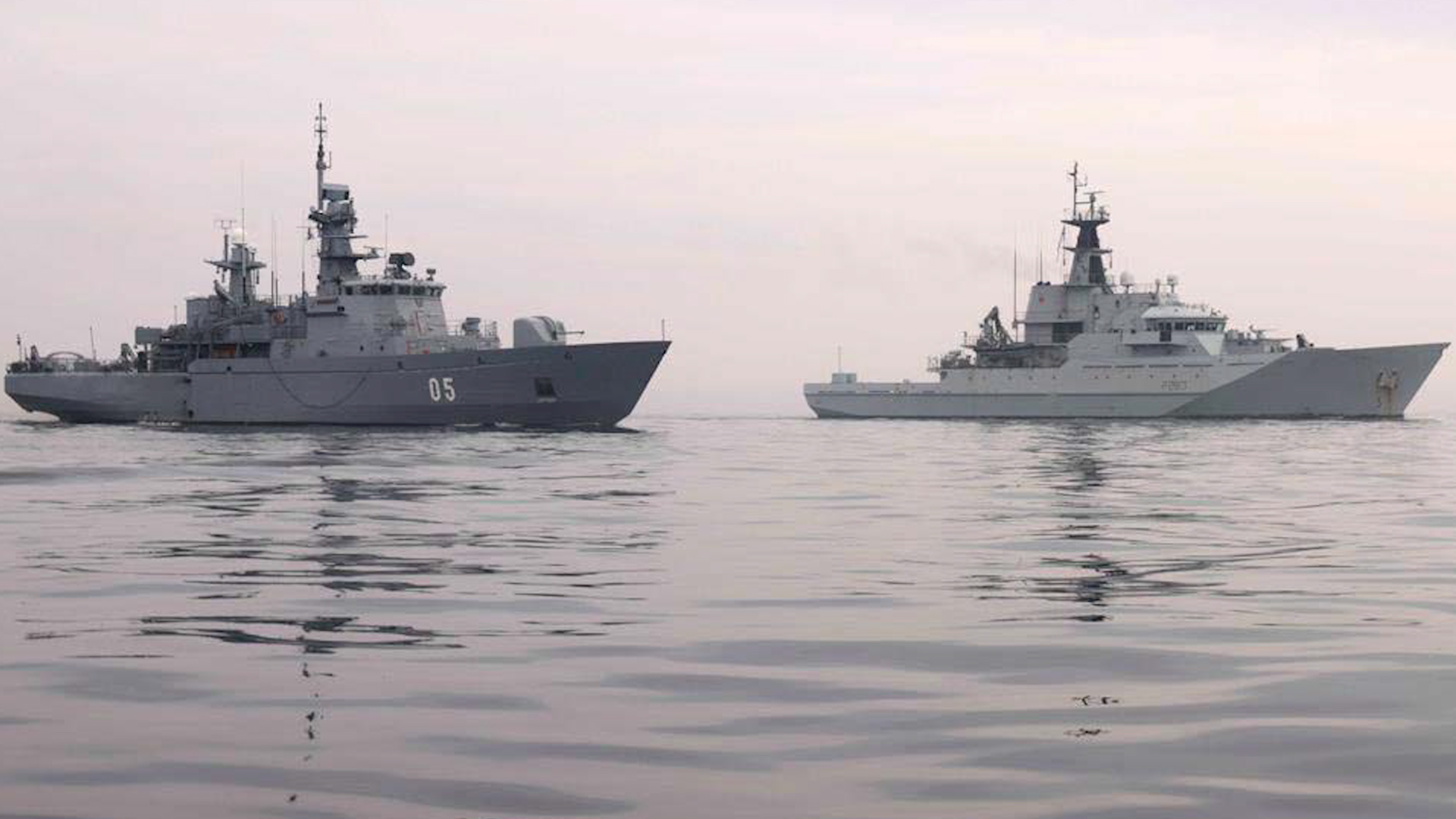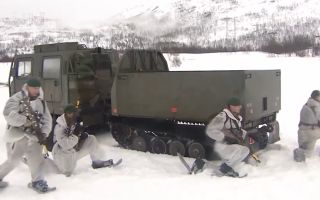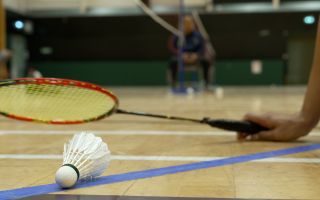
Sitrep: JEF a good start, but defence of undersea cables needs funding and aggression

The defence of critical underwater infrastructure needs to be much more aggressive, and attacks on these cables are number one threat to the UK, two defence experts have told BFBS Forces News' Sitrep podcast.
Resident expert Professor Michael Clarke was joined by former Royal Navy Commander Tom Sharpe to discuss how to defend European data and power cables, and undersea pipelines.
Prof Clarke said the West needs to begin defending this infrastructure with more aggression and should "use the law in our own interests".
- Sitrep: Could 2025 be the year UK personnel have boots on the ground in Ukraine?
- Sitrep: Israel has no business in Syria amid opportunistic incursion into DMZ
- Sitrep: We're not at war but we're not at peace either, so where is the line drawn?
"If we rely only on the strict principle of the law, I think we'll always be behind the curve," he said.
"We've got to come up with a more aggressive approach to say this is simply unacceptable."
Prof Clarke suggested that legal problems aside, the "dark fleet" ships carrying out such acts of sabotage should be seized.
"Even if we haven't got the precise legal terms to seize them, I think these ships could actually be taken into ports and then we could start a legal argument about them," he said.
"The answer to the owners of the ships is 'well we will argue about it for five years, maybe we will argue about it for 10 years'.
"'You're not going to see your ship back at sea for a very long time'."
He said the dark fleet of ships was now very large, with around 1,000 dark fleet ships belonging to Russia.
"Most of them are rust bucket oil tankers," he said. "That represents about 15 to 17% of the oil tanker fleet, so this is not trivial.
"This has grown immensely since the invasion of Ukraine in 2022 and so we've got to do something about it.
"Dark fleet ships breaking the law on several grounds, sanctions-busting, dragging their anchors, sailing without insurance, creating a hazard to everything else at sea.
"We can't live with this forever."
Cdr (Retired) Sharpe agreed with Prof Clarke and said the response needs more funding.
"We just need to resource this whole business of critical underwater infrastructure protection better," he said.
"It's the number one threat in many regards to the UK, the strategic defence review needs to absolutely be all over it.
"Anything to do with it needs to be resourced much, much better."
Cdr Sharpe said Nato was poorly resourced to tackle the problem when it comes to actually doing something, but said the Joint Expeditionary Force was a step in the right direction.
"Again, having the JEF 10 countries, if you look at the ships that we have across the 10, then that looks much more promising, which is why I think this is a very good first step," he said.
The JEF recently activated a new AI-powered system to track and monitor suspicious activity from Russian "shadow fleet" ships.
BFBS Forces News' technology reporter Claire Sadler said this new system, called Nordic Warden, aims to minimise the likelihood of sabotage going unnoticed.
"AI is fast, so it'll analyse all of that in real-time, detect various anomalies, like unusual vessel movements, ships loitering near sensitive areas or deviating from the courses you'd expect them to be on," she said.
"And when a vessel is flagged as a potential threat, that system will then generate alerts to JEF nations and Nato allies… all that information out there is brought together by AI at speed."
Recently, two undersea communication cables, including one that linked Finland to Germany, were severed – reminiscent of other malicious incidents such as the Nord Sea gas pipeline and other undersea cables damaged last year.
You can listen to Sitrep wherever you get your podcasts, including on the BFBS Forces News YouTube channel.









